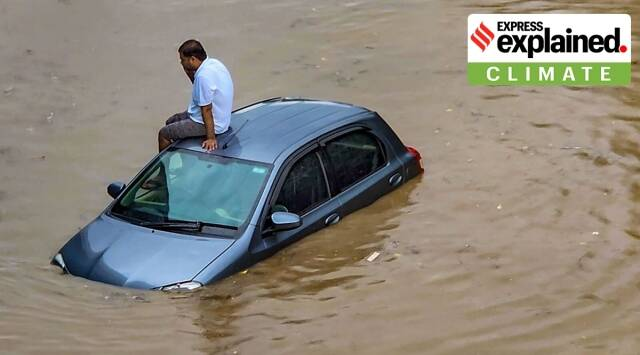Description

Disclaimer: Copyright infringement not intended.
Context
Recurring extreme rainfall events in India and the lack of lessons learned from them.
Details
- Since the Uttarakhand disaster in 2013, India has experienced major extreme rainfall events every year.
- Scientists have been warning about the increase in intensity and frequency of heavy rainfall events.
- These events have resulted in large-scale flooding, destruction, and loss of lives in various parts of the country.
Recurring Extreme Rainfall Events
- Major extreme rainfall events have occurred in multiple cities and regions, including Kashmir, Chennai, Bengaluru, Pune, Mumbai, Gurgaon, Kerala, Assam, and Bihar.
- The trend aligns with scientific predictions of more intense and concentrated rainfall within shorter periods of time.
Causes of Disasters
- Extreme weather events have become inevitable, but the resulting disasters are not solely due to natural causes.
- Official incompetence, neglect, callousness, and greed aggravate the impact of these events.
- Improper construction, blocked water channels, population growth in vulnerable areas, and encroachment on floodplains contribute to the severity of the disasters.
Specific Examples
- Bengaluru experiences annual flooding not due to unusual rainfall, but primarily because natural water channels have been blocked by irregular construction.
- Srinagar faced unprecedented flooding in 2014 due to heavy rainfall and population settlements in low-lying areas along the Jhelum river.
- Kerala's destruction in 2018 resulted from settlements and tourist infrastructure on floodplains.
- Mumbai's recurring floods are attributed to broken or clogged drainage systems.
- The Uttarakhand disaster was worsened by unregulated construction and poorly planned infrastructure.
Lack of Learning and Opportunities
- Each extreme rainfall event in the past decade has served as a warning and offered opportunities for learning.
- However, very few lessons have been learned, and there is still a lack of action and preparedness.
- India is currently in the process of building infrastructure, presenting an opportunity to design resilient systems that can withstand the expected impacts of climate change.
|
PRACTICE QUESTION
Q) Discuss the challenges and implications of recurring extreme rainfall events in India, highlighting the role of human factors in aggravating the resulting disasters. (150 words)
|

https://indianexpress.com/article/explained/explained-climate/since-2013-extreme-events-each-year-but-few-lessons-learnt-monsoon-rain-8822492/














